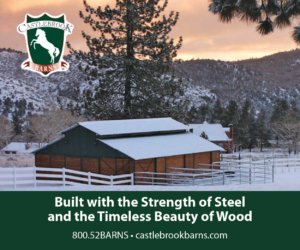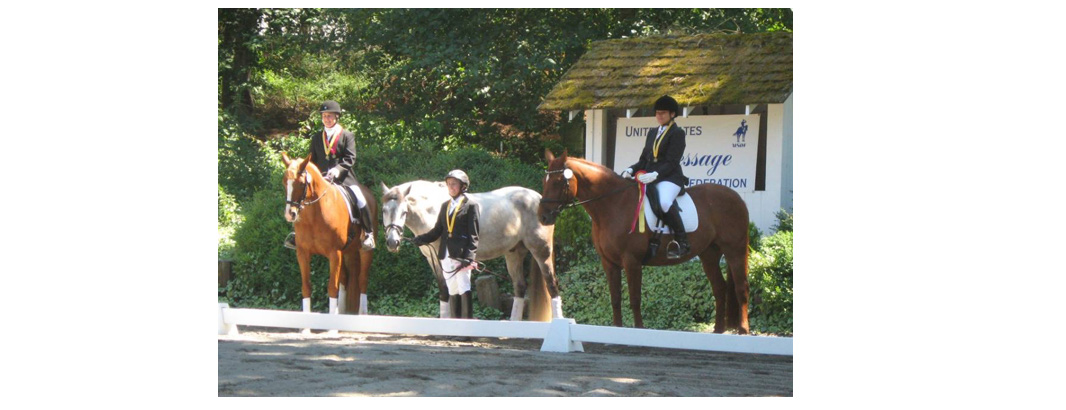Realities of Life as a Horse Trainer
by Kim Roe
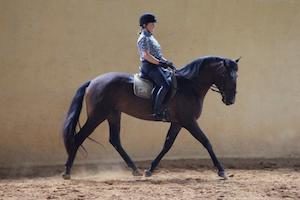
I got my first horse training job when I was 12 years old. A neighbor had purchased a pony for his children and it kept bucking the kids off, so he gave me $25.00 to ride the pony for a month. I remember being proud of the success I had reforming that pony, but the real thrill came when I saw the joy it brought those children. This was the beginning of my professional career. I’ve earned my way with horses one way or another ever since. This included herding and gathering cattle, starting and galloping racehorses, packing tourists into the Sierra back country and loping colts for a reining trainer as a teen/young woman.
Later I attended Western Washington University and was nearly finished with my bachelor’s degree when I got offered a job working for an upper level dressage trainer. I jumped at the chance. This trainer not only taught me about riding, but also gave me instruction on how to train dressage horses and teach people, too. She was a fabulous mentor and an example of an ethical and fastidious horsewoman.
I never solicited for any work, the requests to ride horses for others simply started coming in. Word got around that I was training a few horses and giving lessons. All of a sudden, I was a professional. I’m not advocating this method of getting into the horse business, but for those who may be interested I assure you it involves the good (and great), the bad and even the ugly:
The Good
- You work with horses all day!
- You work with happy, passionate people who are living their dream. Horse people are some of the best people you will ever be around and the horse community is a powerful ally in life. My clients enrich my life in many ways; some have become life-long friends.
- You will be physically fit. You will walk many, many miles every day: lunging, teaching, leading horses in and out, and doing never-ending ground work.
- The horse business will take you places. I’ve been all over the United States and Canada for horse-related activities. Last year I traveled to Brazil to ride and train.
- You will meet interesting people. I’ve trained with Americans, Canadians, Germans, a Frenchman, a Spaniard, and a Brazilian. I’ve discovered we are all very similar; we all speak “horse,” regardless of our language or origins.
- You continue to learn and this keeps it interesting. Working with horses is never dull.
- Your heart will be filled. You will get to see people having the time of their lives. You will help them conquer fears, grow strong and feel free.
- You will make the lives of horses better.
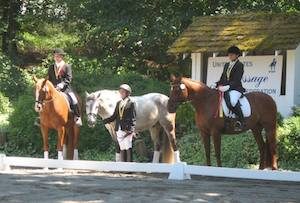
The Bad
- The job is physically demanding and hard on your body. Let’s face it, it’s not if you get hurt, but when.
- You have to work horses—when it is freezing, raining, blowing, scorching hot, or even when you’re sick. The horses need you every single day.
- You work really long hours. It may be 10:00 at night, but you still have one more horse to ride. You not only missed dinner, quite possibly you never had lunch.
The Ugly
- It is very difficult to make a living in this business. Costs are high and your income will be limited by your energy level. You can make a decent living teaching lessons, giving clinics, or selling horses, but these endeavors require new skills. Being a good horse trainer does not make you good at teaching or selling horses.
- You will be judged by how well you do in the show ring. Success requires at least one really good horse as well as the money and time for promotion.
- People will bring you dangerous horses that have impossible problems. You will be expected to “fix” them—quickly.
- Your heart will be broken. You will fall in love with horses that don’t belong to you. They will be sold, taken to other trainers, or just leave for any number of reasons. You will never recover from the separation from some of these horses. You will also lose clients you care for. People who have been a big part of your life will need to move on and you have to let them go, gracefully.
- It’s hard on your family. You will need a very forgiving and supportive spouse. At times you have to choose between pleasing your family and pleasing your clients. If you choose your family, your business will suffer; if you choose your business, your family will suffer.
After 30 years of training horses I would offer the following advice as some of the most important qualities required for success, outside of being great with horses:
You need good people skills. Your clients are people, not horses. They won’t come to you if you don’t communicate with them. Be kind, honest and ethical. This is an expensive hobby. It has to be fun for the people who are paying you.
Understand how to run a business. Consider getting a business degree. The most successful trainers (not necessarily the best horse trainers) are good business people. You must have good health and liability insurance, and you will need to know how to manage staff.
You need to be thick-skinned, creative and tireless. You can’t be easily defeated in the down times, and there will be down times.
Finally, know when to say no. Be familiar with your own limitations and let them help define your niche in the business.
Every day I am grateful that I am in the horse business. Yes, it is demanding, and exhausting. I’ll never be wealthy, but I am rich with good horses and lovely human beings. I still get a rush from training a horse and seeing the delight and happiness in the owner when success has replaced frustration. And, I’m still learning and growing in my love of these tremendous creatures.
Originally Published September 2014 Issue
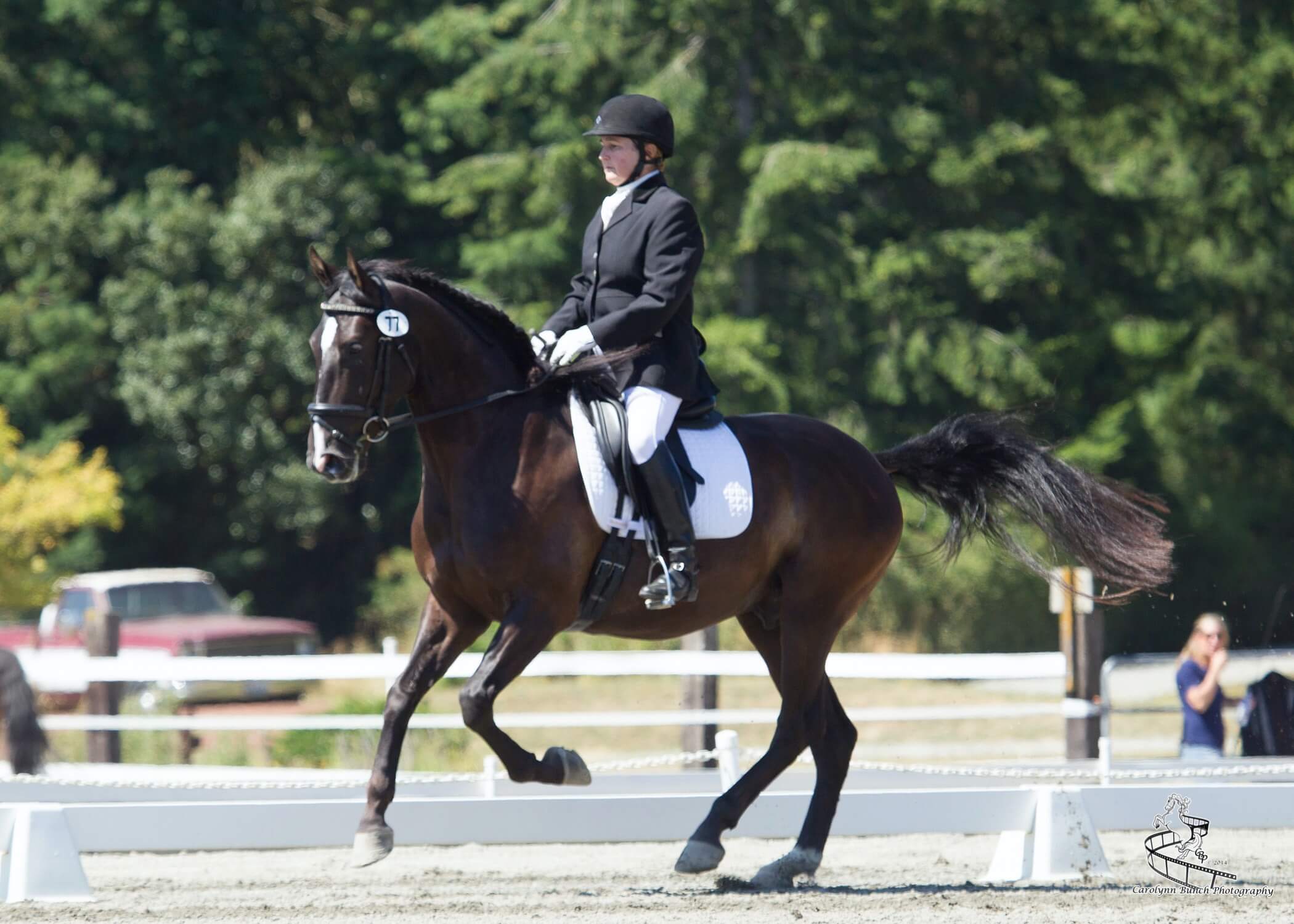
Kim Roe grew up riding on the family ranch and competed in Western rail classes, trail horse, reining, working cow, and hunter/jumper. She trained her first horse for money at 12 years old, starting a pony for a neighbor.
Kim has been a professional dressage instructor in Washington state for over 30 years, training hundreds of horses and students through the levels. In recent years Kim has become involved in Working Equitation and is a small ‘r’ Working Equitation judge with WE United.
Kim is the editor of the Northwest Horse Source Magazine, and also a writer, photographer, and poet. She owns and manages Blue Gate Farm in Deming, Washington where she continues to be passionate about helping horses and riders in many disciplines.




